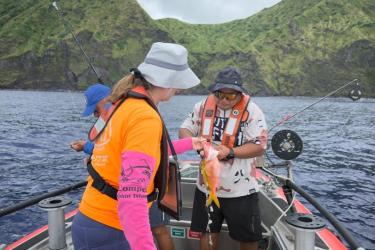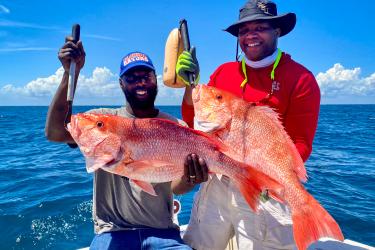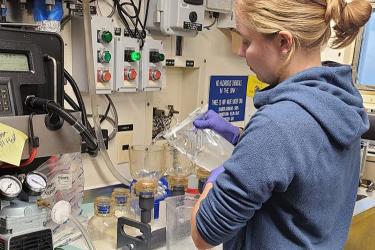Salmon marine survival is highly correlated with both physical and biological climate indices. In large part, this relationship may be due to interactions between salmon and other species.
We know much less about species interactions in the marine stage than in other life stages. This knowledge gap is significant because the marine stage is where we expect the largest declines in survival due to climate change. Addressing this gap is important in developing management actions to improve prospects for marine survival.
To improve our understanding of the marine life stage, we use multiple models to explore which species interactions are most sensitive relative to selected climate indices. These model results can then be used to explore potential conservation actions to help Pacific salmon and other species, such as southern resident killer whales, which depend on them.
Because of the many unknowns regarding species interactions that influence salmon survival, we start with a qualitative network model. We then test specific relationships within that model using statistical analyses.
Functional relationships supported by the statistical model are then used to refine equations and parameter values in EcoTran, an intermediate complexity, end-to-end food‑web model. Finally, we simulate potential management alternatives by conducting explorations under different climate change forcing and perturbation scenarios.
- We represent salmon in multiple functional groups to inform both conservation and sustainable fisheries goals. Therefore, our functional groups include populations protected under the U.S. Endangered Species Act and those targeted by fisheries.
- Our goal is to evaluate the cumulative effects of management actions and climate drivers in both freshwater and marine environments. Results from multi-species marine models will be incorporated into single-species life cycle models for individual Columbia River populations.
These models will be used to develop a decision support tool, which can help evaluate many more management options across the entire life cycle than previously possible. - The ecosystem model for salmon management questions can be used for many other species and stocks, such as hake, sardine, and herring. Improved parameters for protected species will be incorporated into standard management strategy evaluations.
Our results will improve the integration of conservation goals and climate change considerations across the entire ecosystem for fisheries management in general and in accordance with specific goals of the Pacific Fishery Management Council.
This effort is part of the Western Regional Action Plan (WRAP) to implement the National Climate Science Strategy. Our goal is to provide scientific support for management that takes a comprehensive approach to climate change.
For more information, contact Dr. Lisa Crozier.



